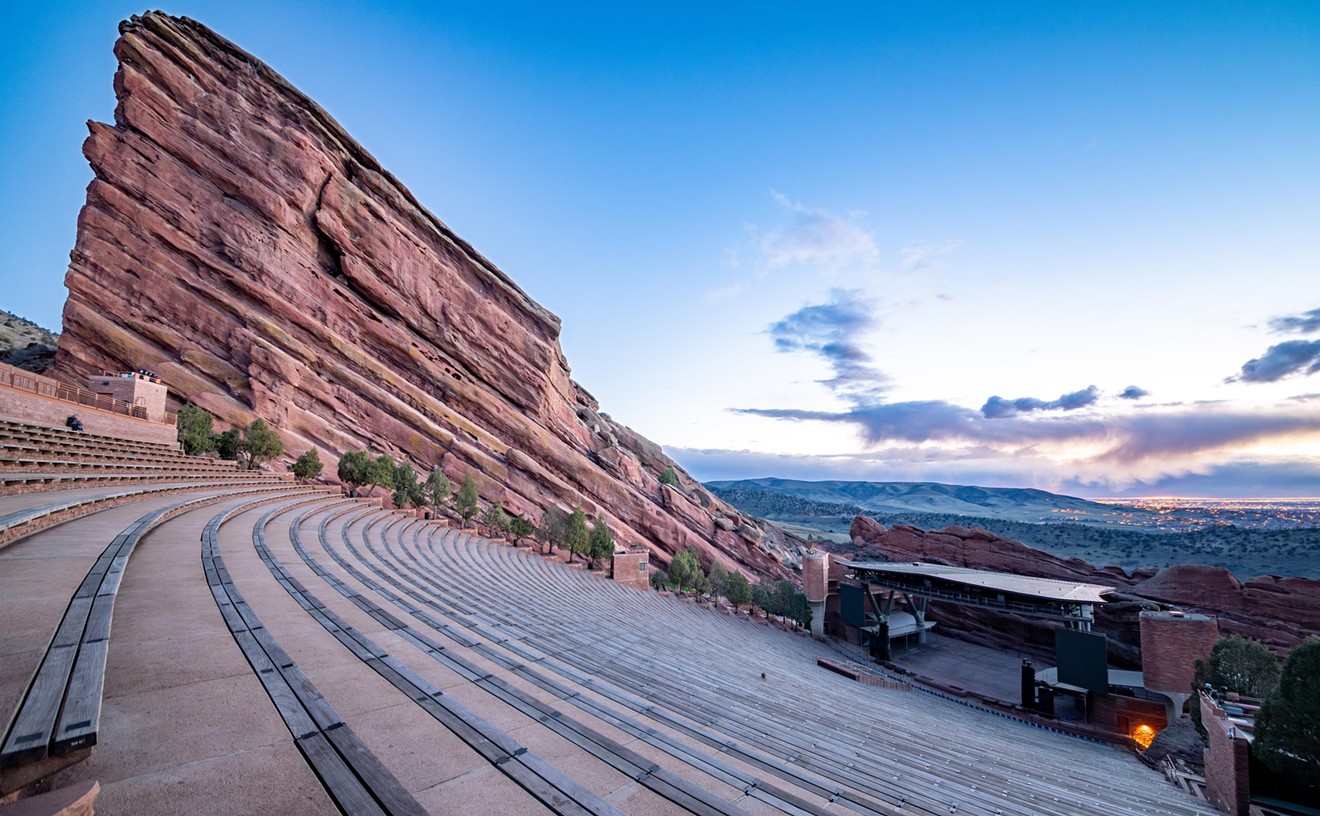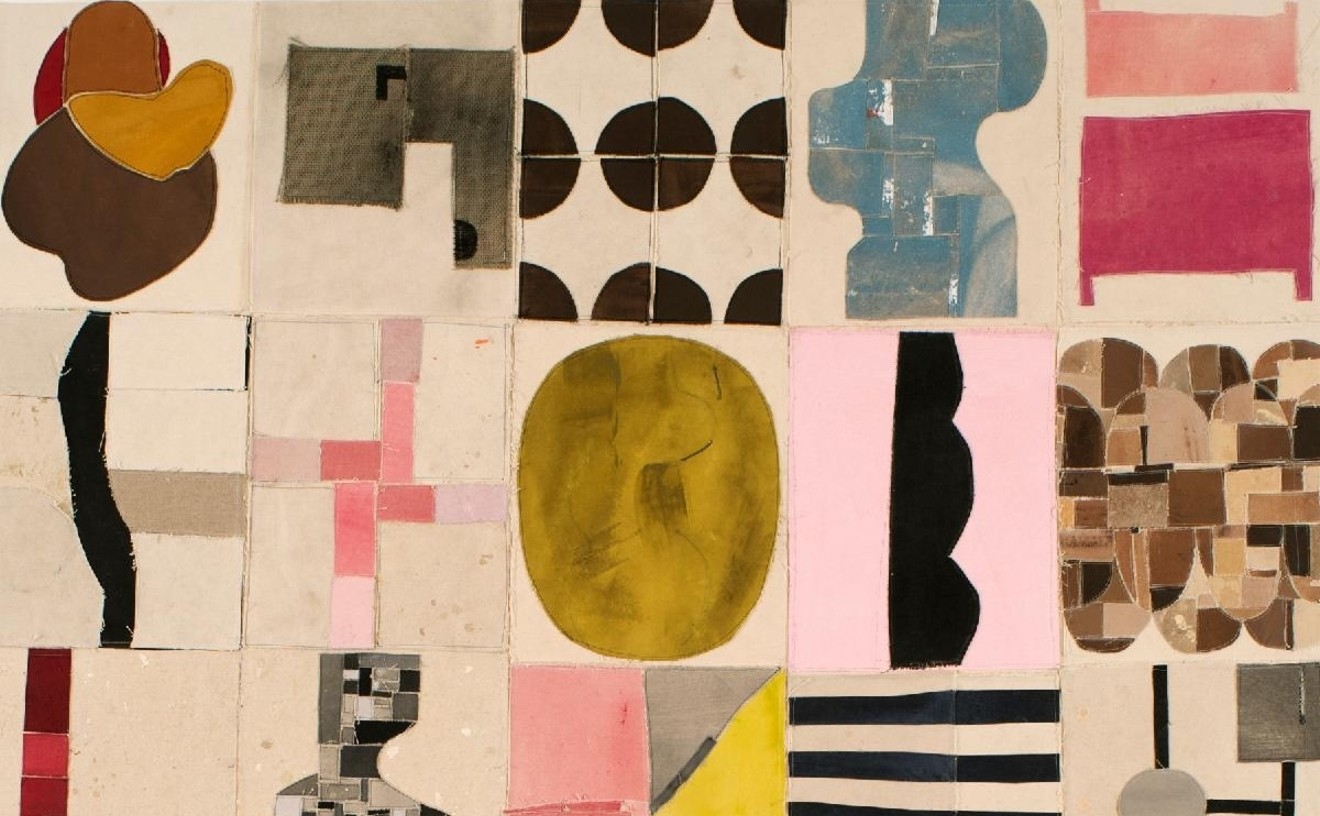Waldman will read and sign books Wednesday night at 7:30 p.m. at the Tattered Cover Colfax Avenue. We caught up with the iconic poet and activist via email about to talk about Gossamurmur, the power of preserving artistic legacy, and keeping the world safe for poetry.
See also: - Poet Noah Eli Gordon on his wild new collection, The Year of the Rooster - Poet Serena Chopra on contemporary loneliness and her first full-length book, This Human - Erica Walker Adams on fantasy, Tarot and the existence of faeries
Westword: What was the process of writing Gossamurmur? What was it inspired by?
Anne Waldman: It was inspired by the urgency of saving valuable tape archives at The Jack Kerouac School at Naropa University in Boulder. We have been recording our Summer events for nearly 40 years and have fragile tapes by John Cage, Allen Ginsberg, William Burroughs, Diane diPrima, Gary Snyder and myriad others. It takes money and resources and a full time archivist to do the job properly because the technology changes and will continue to change into the future. I want this treasure trove available to students and scholars in a more systematic and expedient way. I want people of the future to know--if there are some left--that some of us in these times were not just slaughtering one another! It's an archive against the repression of historical memory. Against "master narratives" of all kinds.
And I have always gone to poetry for the news of our consciousness, and for generative energy and delight. The discourse amongst the community of poets and artists has been provocative and life-affirming. Just go to Archive.org and scroll down to "Naropa." Some of the work is online and readily available. The University has made a commitment but we need to partner with others who can really help get it out there for use and for the wisdom it holds. I feel most urgent about its place in the world of arts and letters and beyond.
It could disappear in a fire or flood. Our campuses are on floodplains, although some of the material is in a more secure location. We need a compete index. Each summer we have hundreds of hours of terrific and generative material more. Our new President Chuck Lief is an ally, which is very important. But this book could refer to many other kinds of archives, as well, and does.
In the book you write about Deciders and Imposters, saying that "They wished to interfere with the desires of the Original Anne, she who writes this, who struggles in real twenty-first-century agon to warn the world of the impending collapse of generative language, of the Deciders' impulse to control or destroy the narratives that are anything but master." Can you discuss what you mean about the impending collapse of generative language and the idea behind Deciders and Imposters?
Deciders control policy and money. And often operate and "decide" out of ignorance. They see poetry as too powerful or too unnecessary. One Board member once said "It's all about impermanence anyway, so what's the fuss?" They don't see the artistic value of poetry, as they might see the value of Buddhist or spiritual teachings, as it has no "authoritative" coinage. Or it is tainted by artistic ego. Our culture's language is demeaned as time passes. We lose touch with whole artistic legacies and have to reclaim them.
Do you think about audience reaction when you're creating a piece?
Not really. But I am delighted when people respond and I felt that this book would touch a nerve. It has a sci-fi aspect, an ecological theme, it explores the trope of the doppelganger. It notices the New Weathers which we experience all around us. It time travels and yet it feels very current.
Does your work have specific goals?
To wake myself and others up to language, surprise, and to modal structures of poetry. And to meditating on our heritage. This poem tells a complicated story with humor as well. It travels to the tundra and to the gossamer wings of butterflies as well as the rings of Saturn.
What's your writing process? How has it changed over the years?
I get worked up over an "idea" or the ethos of an idea. I follow dreams, take notes on travels, and engage in research often--if I need names, details, facts that enhance the project. Documentary Poetics is a practice that has no founder and you can find yourself with some musty books in a library or surfing the net. I do versions, re-organize, the text goes through changes...I work late at night.
It is on my mind all the time. I worked on THE IOVIS TRILOGY: Colors in the Mechanism of Concealment for 25 years--a 1000 page feminist anti-war epic, dedicated to my son Ambrose and his generation. It tracks a personal history and also the many wars of our lives...there are many voices in this huge montage, and I couldn't let it go. It kept building over time.
What do you struggle with in the creative process?
Time, the exigencies of our speedy world, the sorrows of the political realm. The "broken heart" in so many realms. How to maintain an evenness, a sanity, a confidence that poetry can help wake the world (and myself) to itself.
You are known for your powerful performances of your poetry. What's the value of the performance of poetry versus typing it out on a page?
I think they have equal values. In my case they are inseparable. There's no conflict, although "readers" and "listeners" might come to the work in different ways. I love the book as a vibrational object. I also like to get up and activate the text energetically with my voice.
You co-founded and teach at the Jack Kerouac School of Disembodied Poetics at the Naropa Institute. What do you hope to instill in your students?
An optimism about the necessity of poetry in our world. To be a guardian of texts--William Blake as well as Gertrude Stein or Langston Hughes or Frank O'Hara. To read and study and honor the poetry of the past from all cultures. To learn history through the arts. To enjoy the "common ground" of imagination. And it's a practice--like a spiritual practice--not so much a career, although one deserves support for this work. Teaching others is important and working in community in a non-competitive environment.
What do you think the poet's role is in today's society? How has it evolved?
To be a medium, a preserver, a guardian and to reclaim the power and wisdom of what is getting lost. So many languages as well as animal and other lifeforms are becoming extinct. To give voice to those that have no voice. To struggle for justice and humanity. We have a motto at Naropa: "keep the world safe for poetry." It's humorous but has some real bite to it. If the world is safe for poetry it can be safe for many other things.
Follow @WestwordCulture










